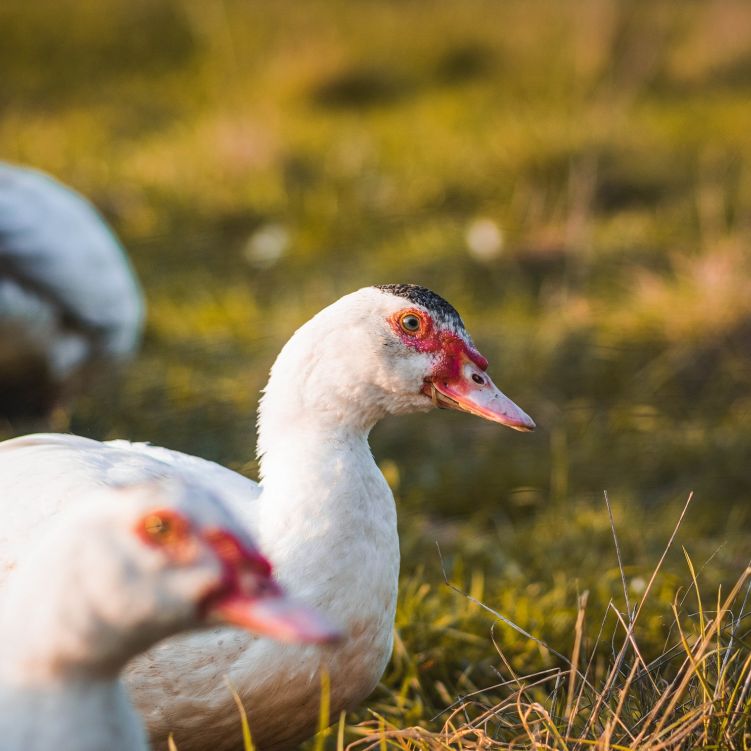Ducks are social, curious creatures who thrive in the company of others. Whether you’re keeping ducks as companions or for egg production, it's essential to provide them with the right care.
Before committing to a companion duck, ask yourself if you have the space, time, and resources to meet their specific needs. Ducks require daily care, including regular cleaning, access to fresh water, plenty of mental stimulation and environmental enrichment, and companionship.
Read on for some tips on deciding if ducks are the right fit for you, how to create a suitable environment for them, and how to maintain their health.
Socialisation
Ducks are very social and thrive in groups – they are NOT solitary animals. They typically live in pairs or a flock around water, so ducks being kept as pets need other duck companions. Ideally, you should have at least two ducks to allow them to interact and form social bonds. In a flock, ducks establish a social hierarchy and often form close connections with specific ducks within the group.
It’s important to remember that ducks are not always from the same natural flock, so they may not initially be compatible with each other. Remember to introduce ducks to each other slowly and safely to ensure they have time to get to know one another and form social bonds.
In some cases, ducks can get along with other poultry species, like chickens, but it's always best to have at least one other duck as a companion.
Housing
Companion ducks can be kept in a variety of housing types in your backyard such as a fixed shed with an enclosed or open run area with deep litter, or a mobile house that is moved around the garden. Ducks must have a secure coop to keep them safe from predators and harsh weather and an outdoor run area where, during the day, they can enjoy the outdoors, forage, graze, and access a water source in which they can submerge themselves.
The coop should provide ample space—at least 1 square metre per 1-2 ducks as a minimum—and be well-ventilated and made of appropriate materials to prevent it from becoming too hot or too cold. Ducks are comfortable in cooler temperatures and have a thermoneutral zone (this is the temperature range in which they are comfortable and do not need to expend extra energy to maintain a normal body temperature) between 7°C and 23°C.
A large outdoor space is ideal, as ducks enjoy exploring their environment, grazing on grass and searching for insects. Ducks are known to make some mess while exploring, especially when it comes to water. So, if your ducks are free ranging you may want to fence off areas of your yard to protect certain parts of your garden and to contain their activity to places where you don’t mind them making a mess.
It’s important to note that there are legal restrictions on the keeping of backyard poultry, including ducks. It’s important to check with your local council regulations whether there are any restrictions on the number and types of ducks that can be kept and the size and location of backyard poultry housing.
The importance of water
Water is a critical component of duck care. Ducks require access to a clean water source where they can fully submerge themselves for activities like preening, bathing, and swimming.
Options for backyard water sources include deep troughs, showers, and pools. Keep in mind that ducks prefer different water depths for different activities. For example, they enjoy shallow water for drinking and dabbling, but they need deeper water for swimming and floating. Ducks regularly get in and out of the water. Therefore, the water source should allow ducks to easily get in and out of the water and avoid slipping or injury.
It’s important to maintain the cleanliness of your duck’s water source. Algae and bacteria can quickly grow in dirty water, leading to potential health issues for your ducks. Ensure the water area is well-drained to prevent mud build-up, and provide ducks with a separate, clean, constant source of drinking water.
By following these guidelines, you’re on the right track to ensure that your companion ducks live happy, healthy lives, but they’re just a start - for more information, visit the RSPCA Knowledgebase
This piece was originally published in Australian Community Media newspapers.







